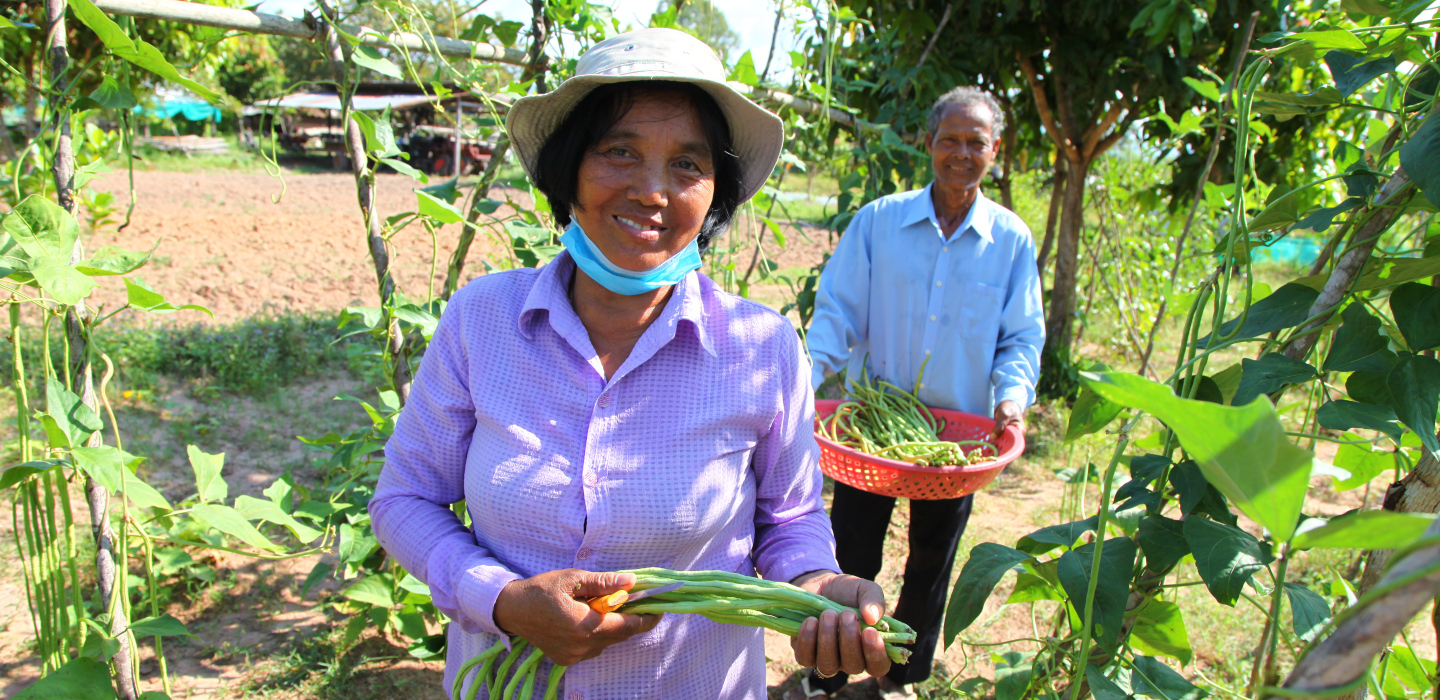Small-scale farmers can help build resilient food systems in a post–COVID-19 world
IFAD Asset Request Portlet
Asset Publisher
Small-scale farmers can help build resilient food systems in a post–COVID-19 world
Estimated reading time: 3 minutes
Before the onset of the COVID-19 pandemic, more than 820 million people were living in hunger. Tens of millions more will join them if we do not take the right actions, and quickly. The resilience of small-scale producers, in particular, is being sorely tested, and the international community needs to step up to help them in order for the world to avoid a food crisis.
These women and men are vital to feeding both rural and urban people in many parts of the world. For example, food systems dominated by small-scale farms produce more than 70 per cent of the food calories in Latin America, sub-Saharan Africa, and South and East Asia. Small-scale farming is also key for maintaining nutritional diversity.
Small-scale farmers are already likely to suffer from hunger (a rather perverse reality, given their contribution to producing food). Although they grow their own food, many of the worst-off farmers have inadequate access to inputs and assets, and as a result get by with a restricted diet that barely meets family needs. For those who regularly produce surpluses, poor information and bargaining power often limit the profits they are able to generate – and reduced income, in turn, makes it harder to diversify and improve their diets. This leaves them and other rural people particularly vulnerable to shocks, including the impacts of the present pandemic.
But they can also be part of the solution.
In a sense, they already are right where we need them most: in rural areas of developing countries, where most of the world’s poorest and hungriest people are. These small producers are thus the most important source of food in contexts where the need is greatest. They mostly serve domestic markets, making them especially important at times when trade is compromised. In particular, their intimate involvement in markets at the local level means they are well-placed to continue the supply of food in situations where the COVID-19 crisis has created complex logistical and transport issues. In addition, their use of family labour may also enable them to overcome possible labour shortages around harvesting, getting food to market, and other farm-related work.
There are a number of factors that are putting the resilience of small producers – and food systems more generally – at risk. Transport and distribution systems can be interrupted by control measures like lockdowns and restrictions on social interaction. Reduced availability of agricultural labour, as a consequence of restrictions on migration and mobility, is likely to pose an imminent threat in areas with upcoming agricultural seasons – such as the Horn of Africa, Central America and the Caribbean, Western Africa and parts of Asia. At the same time, national food security risks being further compromised by trade and export restrictions, which could be especially damaging for food-importing countries.
To address these challenges and protect the functioning of food systems, making sure farmers can still get the inputs they need is vital. In Cambodia, for example, IFAD is focusing on seeds, fertilizer and irrigation support for key products in local diets – especially green leafy vegetables and chicken eggs. And once farmers have produced, it is equally important that they can get their products to markets to sell them. In El Salvador, we are speeding up investment plans to enable farmers’ organizations to supply vegetables, fruits and dairy products to local markets.
Addressing liquidity issues during the lockdown is another priority. In India, multiple IFAD projects are exploring the use of micro-ATMs to enable members of women’s self-help groups to deposit or withdraw cash. This model is particularly appealing in a lockdown situation.
In crises, farmers often are forced to resort to negative coping strategies, such as asset sales, that erode future productivity. We need targeted approaches to maintain their resilience and help them avoid falling back into poverty. One solution is to provide cash transfers, which have already proven to be an effective tool. In Tunisia, IFAD is supporting a government cash transfer programme in response to COVID-19. The transfers will mitigate the need for asset sales to meet basic needs and help households prepare for the upcoming growing season.
But considering the scope of the pandemic – and of the need in rural areas – IFAD has gone a step further, launching a dedicated Rural Poor Stimulus Facility to enable us to do more to address the immediate needs of small-scale farmers. This represents a short-term approach to ensure long-term resilience. IFAD has initiated the Facility with US$40 million, and we expect to mobilize at least US$200 million from Member States and other donors to scale up support.
As the COVID-19 pandemic continues to damage global health and the world’s economies, it is crucial that we prevent it from plunging millions more people into hunger. Small-scale farmers can help us do this – if we work with them and invest in their activities. Resilient farmers are key for a resilient food system. And they are an indispensable part of a brighter post–COVID-19 world.
Publication date: 06 May 2020